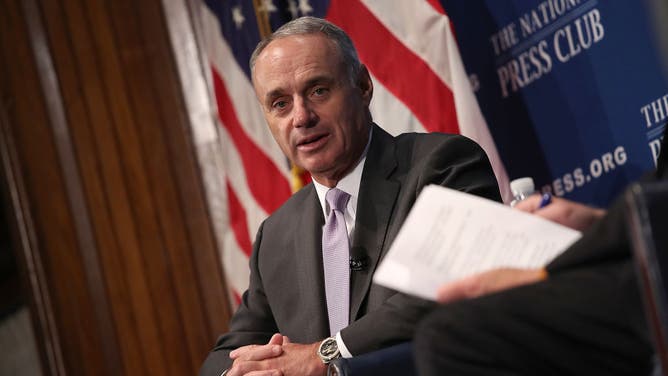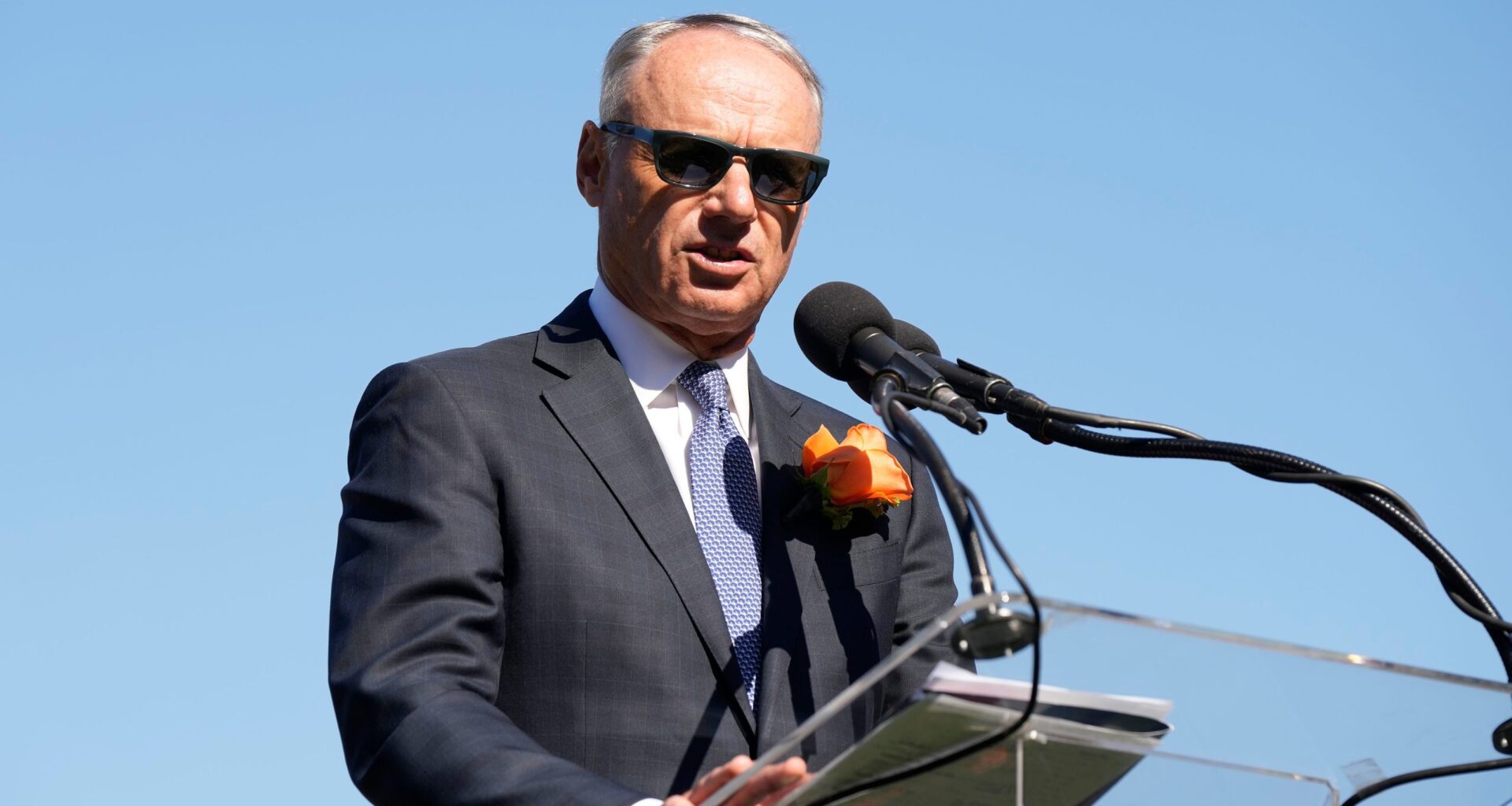Major League Baseball has experienced rapid growth in the last few seasons, as new rule changes designed to increase pace of play and shorten game times have been largely effective. Attendance is up, ratings are up, and interest in the sport has grown to the point where several cities have launched efforts to attract a potential expansion team.
Commissioner Rob Manfred has spoken previously about his desire to add teams, likely within this decade. But earlier this week, when addressing expansion during the Little League Classic, Manfred also explained that expansion could, and likely would, lead to realignment within the league.
Not just realignment, geographic realignment. Essentially, moving teams around within divisions based on geographic region instead of the traditional configurations MLB currently has.
RELATED: Potential Nashville MLB Expansion Team Releases Logo
How would this actually work in practice? Well, suggestions have been flying fast and furious, and would obviously depend on which cities are granted expansion franchises. Austin, Salt Lake City, Portland, Nashville, or Charlotte are widely seen as the most likely choices. But while there are plenty of possibilities, there’s one certainty: die-hard baseball fans and purists are not going to be happy about it.

Major League Baseball Commissioner Rob Manfred. (Photo by Win McNamee/Getty Images)
MLB Realignment Could Cross Leagues, Diminish Rivalries
Geographic realignment could separate teams from longstanding rivals, or move them between the American League and National League. For example, the current American League West is the Seattle Mariners, Houston Astros, Texas Rangers, Athletics, and Los Angeles Angels.
Let’s say that MLB picks Salt Lake City and Nashville for the two expansion teams.
Geographic realignment could create a new division for say, the Seattle, San Francisco, Colorado and Salt Lake City. Or Seattle, San Francisco, Las Vegas and Salt Lake City. That would move the Angels to a new, Pacific South division with the Dodgers, Padres and Diamondbacks. Separating the Dodgers and Giants makes perfect sense.
Or MLB could put Las Vegas, Salt Lake City, Colorado and Phoenix in one division, and the Angels, Dodgers, Padres and Giants in another.
Similarly, you could see a new “South” division with the Braves, Marlins, Rays, and new Nashville team. And a division for the Northeast, with the Yankees, Mets, Red Sox and Phillies. Maybe put the Blue Jays, Tigers, Guardians and Brewers in another division.
Already, you can see the potential problems: we’re erasing historic league alignments, potentially jeopardizing rivalries, and further removing tradition. Geographic alignment is necessarily going to create these problems, with the only benefit being marginally reduced travel.
Let’s say that there’s a new Central South division that includes the Houston Astros, Texas Rangers, Colorado Rockies and Kansas City Royals. Yes, Houston and Texas have some level of rivalry, but otherwise this pairs teams with little-to-no relation to each other, positive or negative.
On the other hand, putting the Yankees and Mets in the same division might actually hurt the excitement of the rivalry by making games between the two teams more common. Here’s one full list of potential geographical relocation options that surely will please everyone.
Northeast
Boston Red SoxNew York YankeesPhiladelphia PhilliesNew York Mets
North Central
Toronto Blue JaysDetroit TigersCleveland GuardiansMilwaukee Brewers
Midwest-Atlantic
Baltimore OriolesWashington NationalsPittsburgh PiratesCincinnati Reds
Midwest-Central
St. Louis CardinalsChicago CubsChicago White SoxMinnesota Twins
Southeast
Atlanta BravesMiami MarlinsTampa Bay RaysNashville Expansion
Mountain South
Colorado RockiesHouston AstrosTexas RangersKansas City Royals
Mountain Pacific
Seattle MarinersSalt Lake City expansionLas Vegas AthleticsArizona Diamondbacks
Pacific
San Francisco GiantsLos Angeles DodgersLos Angeles AngelsSan Diego Padres
What happens to the NL and AL? Eliminated after 100 years of baseball history? Just leave well enough alone, MLB. We’re begging you.

